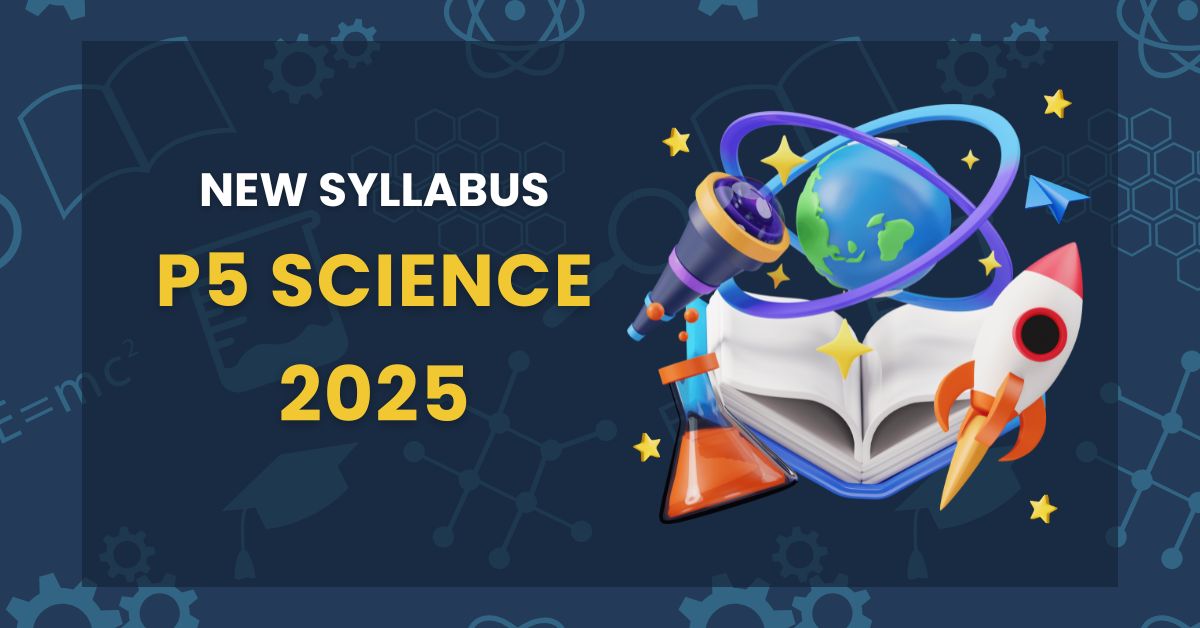The Ministry of Education (MOE) in Singapore periodically updates the Primary School Leaving Examination (PSLE) syllabus to ensure students receive relevant and practical education. The new Primary 5 (P5) Science syllabus introduces updated concepts, revised learning approaches, and a stronger emphasis on inquiry-based learning. This comprehensive guide provides an overview of the key changes and how students can prepare for success.
1. Key Changes in the P5 Science Syllabus
The revised P5 Science syllabus aims to foster scientific thinking, enhance conceptual understanding, and promote real-world applications of science. The key updates include:
- Greater Emphasis on Inquiry-Based Learning: Students are encouraged to explore scientific concepts through questioning, experimentation, and observation.
- Strengthened Focus on Scientific Skills: More emphasis is placed on analysing data, forming hypotheses, and drawing conclusions.
- Integration of Real-World Applications: Lessons are designed to relate scientific principles to daily life, making learning more engaging and meaningful.
- Revised Content Areas: Certain topics have been modified, merged, or removed to streamline learning and reduce content overload.
2. Core Topics in the P5 Science Syllabus
The new P5 science syllabus covers various topics that build on P3 and P4 knowledge while preparing students for P6 and PSLE. Key subject areas include:
- Diversity of Living and Non-Living Things: Understanding classification, ecosystems, and environmental interactions.
- Cycles in Plants and Animals: Exploring life cycles, reproduction, and natural interdependence.
- Energy and Forces: Examining different forms of energy, heat transfer, and simple machines.
- The Human Body and Its Systems: Learning about the respiratory, circulatory, and digestive systems.
- Changes in Matter: Investigating reversible and irreversible changes, states of matter, and their properties.
3. How Students Can Adapt to the New Syllabus
Students should adopt effective study habits and leverage the right resources to excel under the new syllabus. Here are some key strategies:
a) Develop Strong Inquiry and Critical Thinking Skills
Encourage curiosity by asking “why” and “how” questions. Experimenting with real-life scenarios and discussing scientific concepts with peers can enhance understanding.
b) Use Visual Aids and Hands-On Learning
Charts, diagrams, and educational videos help simplify complex concepts. Conducting simple science experiments at home reinforces theoretical knowledge.
c) Practice with Open-Ended Questions
The new syllabus places greater emphasis on reasoning and application. Students should practice answering open-ended questions to develop their explanation skills.
d) Leverage Online Learning Resources
Platforms like Explico offer interactive assessments, quizzes, and mock tests tailored to the new syllabus. Engaging with digital resources helps reinforce learning and identify weak areas.
4. The Role of Parents and Educators
Parents and teachers are vital in helping students transition smoothly to the new syllabus. They can:
- Encourage discussions about scientific topics in everyday life.
- Provide additional learning materials and engage in hands-on activities.
- Monitor progress using assessment tools and provide constructive feedback.
Conclusion
The new P5 Science syllabus aims to cultivate scientific thinking, critical analysis, and real-world application. Students can confidently navigate the updated syllabus and excel in Science by adopting effective learning strategies and using the right resources.
Explico provides comprehensive online assessments and learning tools designed to align with the latest MOE syllabus. Sign up today and give your child a head start in mastering P5 Science!


